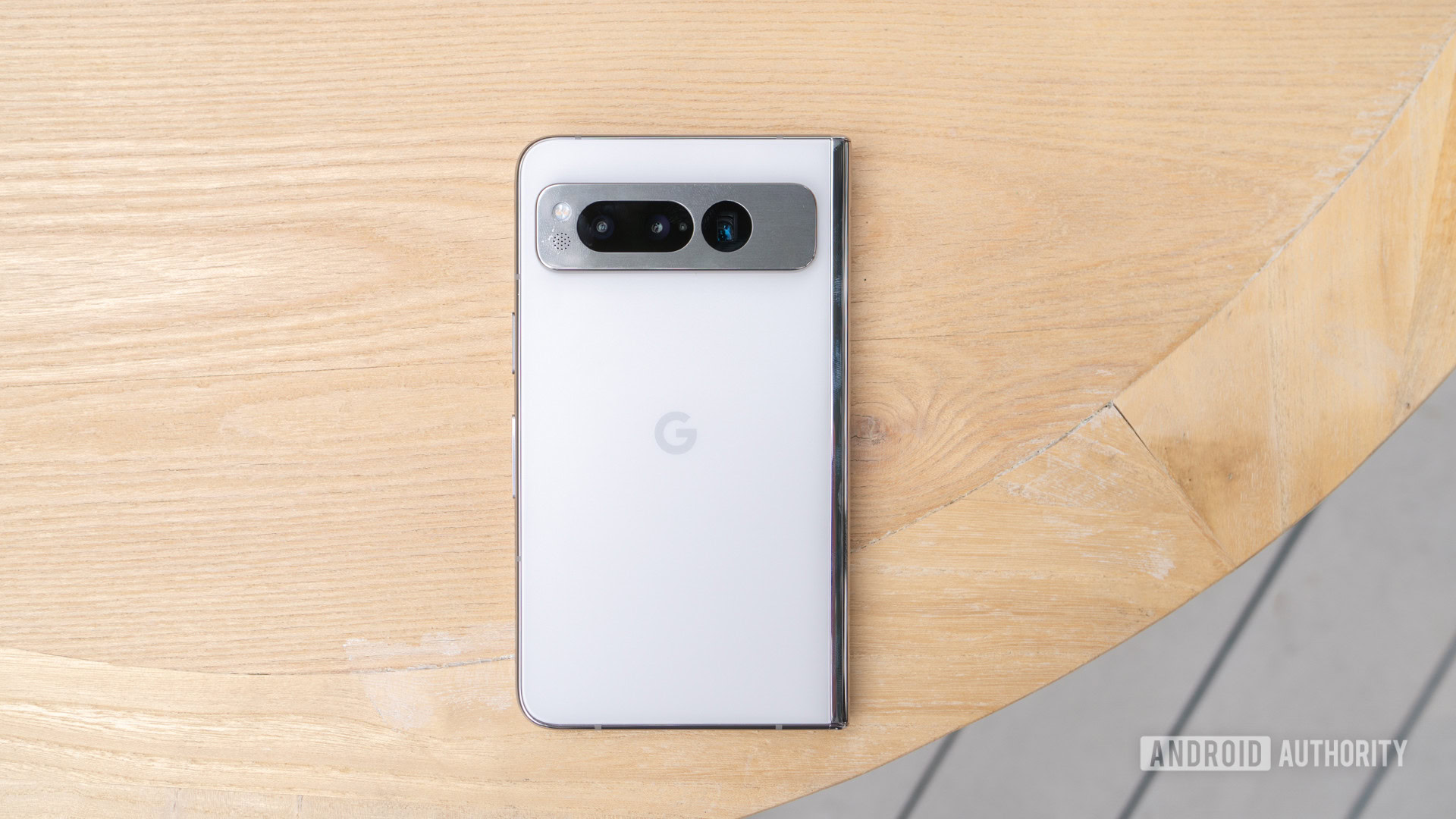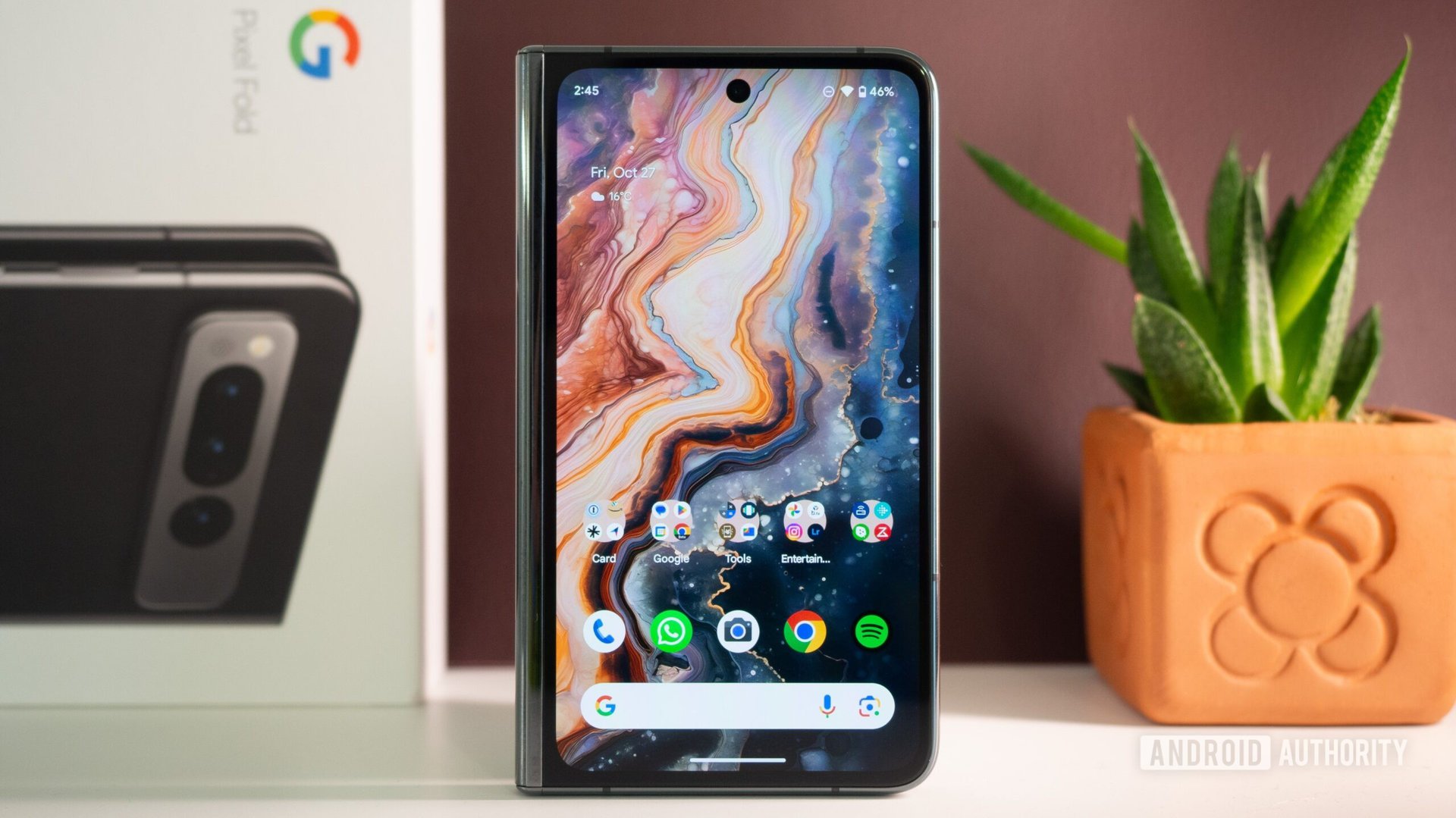Affiliate links on Android Authority may earn us a commission. Learn more.
Source: Pixel Fold 2 might skip the Tensor G3 and add more RAM

- According to a source, Google is currently testing the Tensor G4 chip paired with a whopping 16GB of RAM in the Pixel Fold 2.
- No Pixel phone has ever shipped with 16GB of RAM before.
- If this pans out, the Pixel Fold 2 would likely launch alongside the Pixel 9 series rather than mid-year at I/O, like we saw with the Pixel Fold.
2023 was a big year for foldable phones, as we saw not only several new entries in established product lines but also entirely new lines. Google, for example, finally entered the foldable market with the Pixel Fold, a book-style foldable phone released in May powered by the company’s in-house Tensor G2 chipset.
The company is expected to follow up that phone with the Pixel Fold 2 this year, but we’ve heard little news about the device compared to the other three Pixel devices expected to launch this year (Pixel 9, Pixel 9 Pro, and Pixel 8a). However, thanks to a source, Android Authority has learned key details about the upcoming Pixel Fold 2.
Skipping Tensor G3 for the 2024 variant?
A source (who wishes to remain anonymous) reached out and informed us that Google has been testing the Pixel Fold 2 internally for the last couple of months. Earlier prototypes of the foldable featured Google’s Tensor G3 chipset, codenamed “zuma”, but recent prototypes have shifted to the rumored Tensor G4 chipset, codenamed “zumapro.”
This change during development suggests that Google might ship the Pixel Fold 2 with the Tensor G4 chipset instead of the Tensor G3, but we don’t know for sure. For the record, early revisions of the Pixel Tablet featured Google’s first-generation Tensor chipset, but the tablet ended up shipping with Google’s second-generation Tensor G2 chipset instead. The tablet’s codename was even changed during development to reflect this shift, from “tangor” to “tangorpro,” so it’s possible the same could happen with the Pixel Fold 2 (whose codename is currently “comet”).
The Pixel Fold 2 might shift its chipset, which would likely necessitate a shift of its launch window, too.
If Google is shifting gears on the chipset, it’s possible it could change when the new foldable launches, too. The original Pixel Fold was announced in May 2023 at Google I/O, so it would make sense if its successor had a similar launch. However, the calculus changes if the plan is to ship the Pixel Fold 2 with the Tensor G4, as Google usually reserves its fall hardware event for the full unveiling of its new Tensor chipsets. If Google does plan to launch the Pixel Fold 2 at this year’s I/O, then it’s less likely it’ll include the newer Tensor G4, but if I/O comes and goes with no Pixel Fold 2 launch, then skipping Tensor G3 isn’t out of the question.
We’re told the Pixel Fold 2 is just at the beginning of the Engineering Validation Test (EVT) stage, which means it’s several iterations away from Mass Production (MP). The process usually goes: prototype > EVT > DVT > PVT > MP, so given where the device is currently in the queue, it seems less likely that it’ll be ready for a launch at I/O 2024 in May.
Regardless, what would an upgrade to the Tensor G4 bring to the table? While the full specifications of the upcoming chipset remain a mystery, it’s expected only to be a modest improvement over last year’s Tensor G3 (hence the internal codename of “zumapro” versus “zuma”). Although we don’t know the precise configuration, the Tensor G4 is expected to feature a mix of Arm’s Cortex-X4, A720, and A520 CPU cores. The chipset is rumored to be fabricated by Samsung as opposed to TSMC, though Google is reportedly planning to shift to TSMC to fabricate the Tensor G5.
Hopefully, the company does end up shipping its next-generation chipset on its next-generation foldable because one of the more disappointing aspects of the first-generation Pixel Fold was the less powerful Tensor G2 instead of the Tensor G3.
Pixel Fold 2: The new Pixel RAM king?

Alongside the new chipset, our source told us that some current prototypes of the Pixel Fold 2 feature 16GB of LPDDR5 RAM and 256GB of UFS 4.0 storage. In contrast, last year’s Pixel Fold shipped with a base 12GB of LPDDR5 RAM and 256GB of UFS 3.1 storage. The bump to 16GB of RAM is notable since it’d be the first time that Google has ever shipped a smartphone with more than 12GB of RAM. The increase in RAM would make sense as Google is reportedly planning to introduce more on-device AI features as part of its new AI assistant named Pixie.
As for the storage, the bump to UFS 4.0 should cut down on the time it takes to load files into memory, which is a boon for many tasks like loading apps and games. There could be other storage variants, but we’ll need to wait for the phone to get closer to launch to find out what they’ll be, if any.